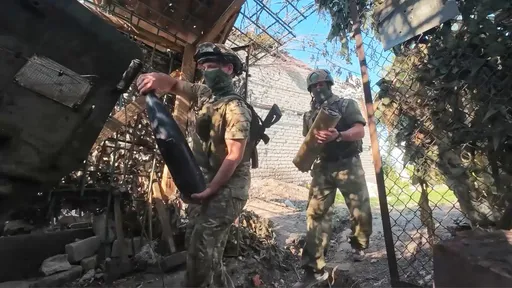After the Western tech firms rolled back their services and products in Russia in response to Moscow’s military action against Ukraine and the Kremlin intensified its own digital censorship, many experts are wondering if the conflict will fundamentally alter the internet as we know it.
Apple and Microsoft have banned the sale of their products to Russians. Leading US internet data firm, Cogent Communications, severed ties with its Russian clients. Lumen, another major US internet traffic provider, has done the same. TikTok has barred Russian users from posting.
Meanwhile, Moscow’s censors have throttled Facebook and Twitter. Access to Instagram has been curbed across multiple Russian internet providers. President Vladimir Putin’s government has blocked access to both Western media and independent news sites in the country, and passed a law that criminalises disseminating information that contradicts the Kremlin’s line.
Taken together, it has brought Russia that much closer to being cut off from global connectivity, with potentially far-reaching consequences.
“Now, as these platforms and services disappear from Russia, it divides the world along a technological fault line,” geopolitical futurist Abishur Prakash told TRT World.
Some are afraid that such moves will only aid Putin in completely isolating Russians from the free flow of information, restricting them from tracking the incursion as it unfolds in Ukraine.
“Look, guys the only space the Russians have to talk about Ukraine and what is going on in Russia is Facebook,” Russian investigative journalist Andrei Soldatov wrote in a Facebook post the week after Russia’s offensive in Ukraine began. “You cannot just, like, kill our access.”
With online access being curtailed by both Western tech firms and Russian censors, has a new iron curtain descended over the Russian internet?
Meanwhile, calls to unplug Russia from the global internet coming from Ukrainian officials have also been met with resistance from several groups.
California-based nonprofit Internet Corporation for Assigned Names and Numbers (ICANN), which oversees aspects of internet functionality worldwide, was asked to revoke Russia’s primary domains (.ru) along with the country’s Secure Sockets Layer (SSL) certificates.
However, ICANN’s chief executive Goran Marby refused, saying that the company is committed to neutrality and “does not extend to taking punitive actions, issuing sanctions, or restricting access against segments on the internet – regardless of the provocations.”
Similarly, the digital privacy group Electronic Frontier Foundation (EFF) supported the ICANN’s decision, adding that war is not a time to “mess with the internet” and that meddling with the internet’s infrastructure protocols would have “dangerous and long-lasting consequences.”
Cloudflare, which helps shield websites from denial-of-service attacks and malware, said in a company blog post that “Russia needs more Internet access, not less.”
Meanwhile, Russian users are sourcing ways to circumvent blocked sites through VPNs.
VPN services tracked at Top10VPN.com found Facebook and Twitter downloads have surged eight times higher than average.
Dreams of a sovereign internet
The idea of unplugging Russia from the internet highlights what is referred to as the ‘Splinternet’ – where balkanised versions of the internet exist in different countries.
China’s “Great Firewall” is one that comes to mind, where the Chinese state regulates an ocean of online content through the largest system of monitoring and censorship in the world. Iran too has substantial state control over internal and external net content through the Telecommunication Company of Iran.
The Russian government has long exerted control over the internet at home, but it has aggressively pushed in recent years to technically isolate Russia’s internet from the rest of the world.
RuNet, or the internet within Russia, has received growing attention over the last decade. It became the focus of a “sovereign internet” law signed in May 2019 that went into effect six months later. The law allows state censor Roskomnadzor to cut off the domestic internet and gain more control over web architecture.
In 2019, Moscow said it had successfully tested the system, which involved restricting the points at which Russian Internet Service Providers (ISPs) connected to its global counterpart. Now in the context of the Ukraine attack, it appears to be re-testing those systems, although the government has denied the reports.
Observers like Andrew Sullivan, president of the nonprofit Internet Society, are skeptical of Russia being able to effectively switch to RuNet and sever itself from the global internet.
“Despite what the government may say, it’s difficult for Russia to disconnect,” Sullivan told TRT World. “It’s important to recognise that RuNet, if it arrives, will not really be ‘the Russian internet’, but a different network that does not have access to all of the rich experience we are familiar with on the internet today.”
“That will be a loss both for Russians and for the rest of the world.”
Furthermore, there are fundamental differences between a sovereign internet system like the Great Firewall of China and RuNet that makes the latter less likely to be effective as the former. The internet digital and physical infrastructure within Russia’s borders is a collection of networks, as opposed to a completely centralised system in China.
“When China connected to the internet – they did it through only three government approved operators and a university research network. This model created connectivity choke points,” said Sullivan, adding that while a smaller amount of connection points enables tighter control, it also makes the system more fragile.
Russia’s internet infrastructure, on the other hand, was built robustly with multiple access points, meaning if you turn off one part of the network then traffic will automatically route via other networks.
“Once redundancies are built into the system it’s very difficult to remove them,” Sullivan highlighted. “Unfortunately, sanctions by other governments are undermining the Russian networks’ resilience, and so we may be about to witness a collapse of the internet”.
'Global splintering'
Whether Russia is unplugged from the internet or not, even a discussion about it is no less than a seismic moment, and the latest evidence of how technology is “splitting” the world, a thesis that Prakash explored in his latest book The World Is Vertical: How Technology is Remaking Globalisation.
He believes one of the fallouts from this episode will be that governments are now “on notice” of how their own geopolitical objectives could put them on a collision course with Big Tech and end up in a similar situation as Russia.
“Because of the Ukraine conflict, governments are going to prioritise technological self-reliance,” Prakash said, noting that “achieving ‘tech sovereignty’, from sovereign internet to local cloud computing ecosystems, is more important than ever before.”
And while the internet is the first to “splinter” because of geopolitics, Prakash argues that the design of the whole system is fracturing.
“The global splintering taking place with the internet is just the beginning of a larger redesigning of the world, where nations are establishing their own technology-based walls and barriers against one another.”























